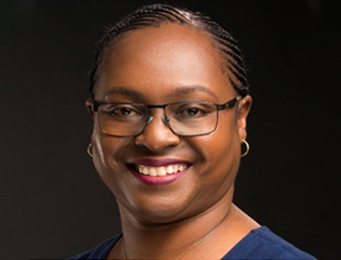| |
|
|

Interviews ::
 |
Amy Wu, an award-winning writer for the women’s Ag and Agtech movement |
 |
Ms. Irene Karani, Children’s Investment Fund Foundations’ Africa Climate Director |
 |
Natalia Schäfer (Schaefer), Leading and Globally Renowned Artist |
|
Read All Interviews |
News / Updates/ Analysis ::
COP 27- some hopes midst of chaos
Climate Change is Happening Now- Time to Take Action!
|


|
|
|

|
Ms. In�s Alberdi, Executive Director, United Nations Development Fund for Women (UNIFEM), spoke to Earth Concern Asia Team on UNIFEM's various efforts in addressing causes and consequences of Climate Change globally. Ms. Alberdi worked for more than 25 years on gender issues and in politics. She came to UNIFEM from her previous position as Professor of Sociology at Madrid University where she had taught Political Sociology and Sociology of Gender since 1993.
|
- How do you think that women and girls are the major victims of climate change globally?
Various groups are vulnerable to climate change in different ways, due to the various constraints each live with, including their unique personal needs, local and regional circumstances, etc., and the impact that climate change has on everyone's lives cannot be diminished. However, women are commonly subjected to social, political and economic inequality and discrimination and it is this inequality that places many women at higher risks of the negative impacts of climate change. For instance preference for male children and discrimination against female children, place girls' health and mortality at higher risk during droughts or famines in areas where boys' nutritional and survival needs are prioritized. And while circumstances differ, evidence and case studies bear out that mortality rates due to disasters and post-disaster events, such as the spread of disease, are more equitable in countries with higher levels of gender equality. Conversely, inequality places women and girls at higher risk.
While women are not a homogenous group, there are few exceptions to gender inequality across the spectrum of age, region, and economic status. To that end we advocate that an analysis of the social dimensions of climate change, including a gender analysis is required to identify issues and design appropriate solutions to climate change - along with environmental, economic or infrastructural analyses. Essential to this human perspective, is a gender perspective.
- What are the major climate change issues from women's rights perspective?
Climate change and gender equality are cross-cutting issues so there are many important interfaces between the two. Solutions to climate change calls for women's participation in governance, a gender perspective in policy and programming at various levels. Studies have also shown that when women are actively engaged as stakeholders in decision-making, results are more sustainable. For example, in Honduras a women-led recovery and reconstruction effort in a Garifuna community that received little assistance post-Hurricane Mitch, lead to longer-term sustainable development that enhanced the community's overall food security; techniques to recover crops evolved into broader local crop diversity and improved production methods as well as marketing strategies. Local women played a majority role in this process, and are credited with advocating for a more holistic approach that has also benefited the land and biodiversity, and simultaneously increased the social status of women in the community.
- What are UNIFEM's top priorities in terms of addressing climate change and women's issues?
Two of UNIFEM's four core pillars are to enhance women's economic security and rights, and advance gender justice in democratic governance. Both of these - economic and political empowerment - help women face the challenges of climate change as well as contribute to means to address it. At the policy level and in light of the historic climate change negotiations underway, UNIFEM has prioritized partnering with civil society and other UN partners over the last year to raise awareness of gender differentiated impacts of climate change and the linkage between gender equality and effective climate policy.
- Hunger and food crisis both inform of majority of women being landless and now due to impacts of climate change pose serious threat. What are your key priorities on women's access to land and food in face of climate change?
Land and property rights are critical in the emerging carbon market agenda where forest and land use practices that mitigate or sequester greenhouse gases can enable land-holders to receive payment. This opportunity should be provided equitably to women and men. Furthermore land and property rights enable women to obtain credit, build businesses, rebuild post-disaster and enhance the economic status of themselves and their families. Wealthier individuals and communities tend to be more resilient to the impacts of natural disasters. These basic rights, and the ramifications of not having these rights, are increasingly relevant to women's ability to not only thrive but survive, and how they cope with the impacts of climate change.
- What are your policy priorities to promote gender and climate framework both at the country level as well as the global level?
On the global level UNIFEM has joined the Global Gender and Climate Alliance - a coalition of over 30 NGOs and UN Agencies - to work with various partners, including WEDO and Energia, to raise awareness of the nexus between gender equality and climate change and provide technical expertise at the ongoing negotiations under the United Nations Framework Convention on Climate Change (UNFCCC). While the overall negotiations have had some set-backs in 2009, the inclusion of gender-specific language in the draft text is considered a success by many UNFCCC Parties and gender advocates. Specifically, gender-relevant text - which was non-existent in the Kyoto Protocol - has increased from zero to eight references in the draft decisions, which remain as the building blocks for the expected final outcome of the ongoing climate change negotiations. To inform the gender and climate framework at the country-level, UNIFEM contributes gender perspectives to various UN-system tools that support UN staff working with Governments on issues related to climate change in the field.
Additionally many of our field offices have been working on the ground, such as the Andean office who helped mainstream gender in a workshop for the Government of Peru on disaster risk management; the Viet Nam office who diligently works to mainstream gender in the One UN pilot work on disasters there; and the India office who compiled a study on indigenous women and climate change, among other offices' efforts. UNIFEM's work in Aceh post 2004 tsunami to advance women's right to property and land and increase their involvement in traditional and formal decision-making, as well as UNIFEM's current work in Haiti after the recent earthquake to help the Government and local women's NGOs ensure shelters and services address the unique needs of women and girls, also yield promising insights. Although these latter two disasters-a tsunami and earthquake- are not climate-caused, the activities in their wake reinforce a poignant lesson; disasters can yield opportunities for women to advance their empowerment and gender equality. As social and economic norms are destabilized, new more empowering ones can emerge.
- How do you see the role of governance within these policy priorities?
Sound and just governance at all levels is very important for effective implementation of gender equality and climate policies. An interesting and often under-recognized current governance issue relates to emerging and new climate funding mechanisms. As governance and advisory panels are established for these funding mechanisms, it will be critical to ensure that they include women and gender experts, as well as have systems in place to ensure equitable benefits of the funds to both women and men on the ground.
- Do you think social mobilization is a key to bring change and to address causes and consequences of climate change?
Climate change and gender equality require social mobilization on multiple fronts. Neither issue has a single solution or a silver bullet, but both require a spectrum of actions by a multitude of actors - fuelled as much or more by public awareness and demand, as governance and legislation. The priorities of states, institutions and the private sector are influenced by their constituencies, consumers and society at large. UNIFEM places great hope in individuals, groups, and communities to affect change.
- What are your key message to the world in the context of women and climate change?
As farmers, entrepreneurs, managers of households, activists, scientists and politicians, women are poised to drive positive change and contribute to the vast portfolio of strategies needed to address this threat. Women's empowerment reaps benefits across the climate-related terrain: in ecological health, food security, disaster preparedness and increased community resiliency to natural disasters, as well as reduction in the carbon footprints of households, communities and countries. The stakes are higher than ever to empower women and ensure they are equal actors and benefactors in order to truly mitigate and cope with climate change.
Date: 11 March 2010.
For your feedback: secretariat@earthconcernasia.com
Note: Opinions expressed in interview sections and individual write ups are of interviewee/ authors; earth concern facilitates to bring ideas and perspectives.
|
|

